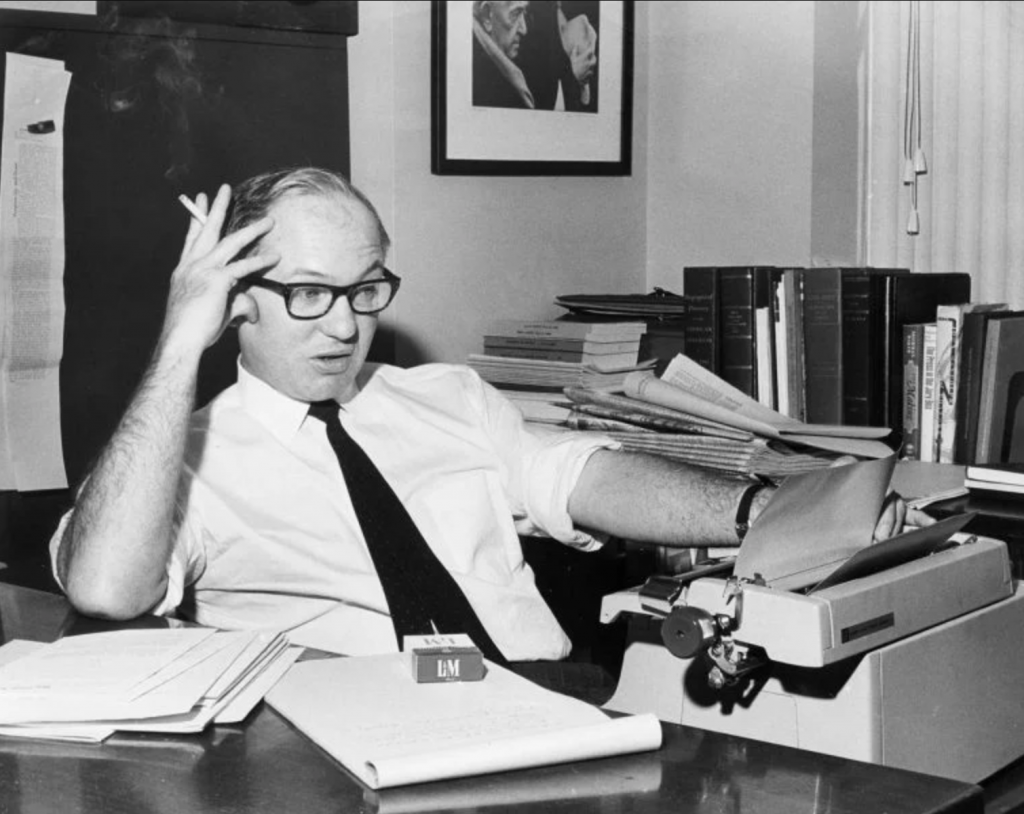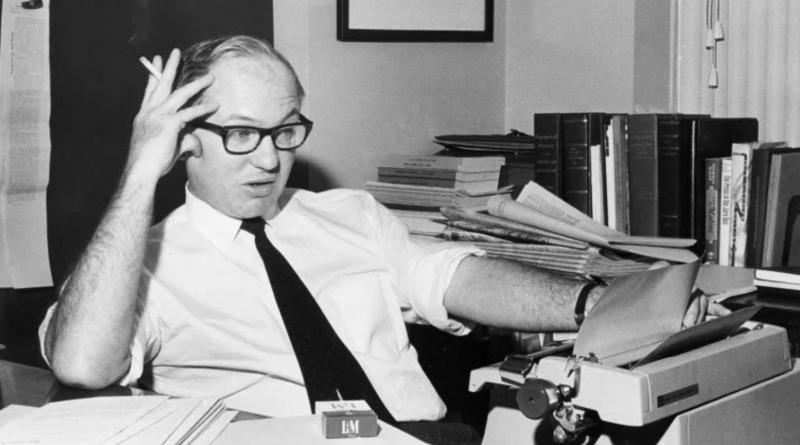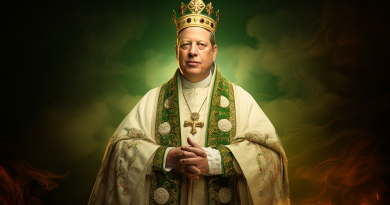Fake News, Faux Progress: The Last Time The Mainstream Media Fought Progress and Civil Rights
Thinking about how the Dominion lawsuit is probably going for Fox (not well), and how the right wing media has made a fascinating display of its true colors by going after the LGBT minority with guns blazing, I wanted to look back at some examples in history when media irresponsibly pushed the wrong side of history. We saw this with the meteoric rise of Donald Trump, who used his shock jock rhetoric to ascend to the presidency. But we’ve also seen it in the past, including within the memory of my parents’ generation.
1957: Desegregation And Its Media Detractors
James J. Kilpatrick, a journalist and later editor with the Richmond News Leader, was a prominent advocate of segregation and of the strategy of so-called massive resistance, led by Senator Harry F. Byrd (no relation to the other famous, contemporaneous racist Robert Byrd from similarly racist neighboring West Virginia) and others- to oppose desegregation in Virginia.

If you look back at news media coverage of things like Martin Luther King’s famous rallies and marches, there was even less positive coverage from major news media organizations like the New York Times, Washington Post, Chicago Tribune, or the Atlanta Journal (Atlanta also had a more progressive newspaper, the Constitution, which was led by editor Ralph McGill, who was also a supporter of the civil rights movement). Similarly to how many news media have covered the Black Lives Matter movement, there was in the 1950s and 1960s a prominent focus on the possibility of violence following these marches and protests. (In Detroit, there was little to no violence, except from the police, something I covered extensively in 2020).
But… The Good Ones
It’s interesting that my (brief) research was able to come up with more in the way of negative attitudes (“what about the looting!”) than overt support for segregation by famous journalists. I suppose we could argue today that there aren’t any credible journalists arguing in favor of fascism. There are still plenty of people defending the likes of Elon Musk, and even a few who have penned credible critiques of a lot of liberal ideas (I am too humble to actually call myself one of them, but I’d like to think I’ve written at least a credible critique of some common liberal nonsense).
There were also, of course, the good ones. And it should be said that most journalists are probably more so the good ones than not, given that they make it their career to shed light on things, to ask tough questions, and to hold institutions and people in power accountable. John Chancellor famously was detained by security at the 1964 Republican National Convention, where he was horrified at the flagrant racism of the new Republican party. A Black reporter was famously chased out of the venue, and Chancellor himself wrote about a Black delegate who had cigarettes put out on his suit by fellow delegates.
There were more John Chancellors than James Kilpatricks, for example, and this is still true today. You might also consider the fact that most right-wing news media has resorted to increasingly esoteric conspiracy theories rather than, you know, actual factual reporting. And why not, honestly? It sells. I’m just glad some folks are still focused on producing the real deal, and refuse to normalize things like fascism, book-burning, climate denial, or transphobia.



